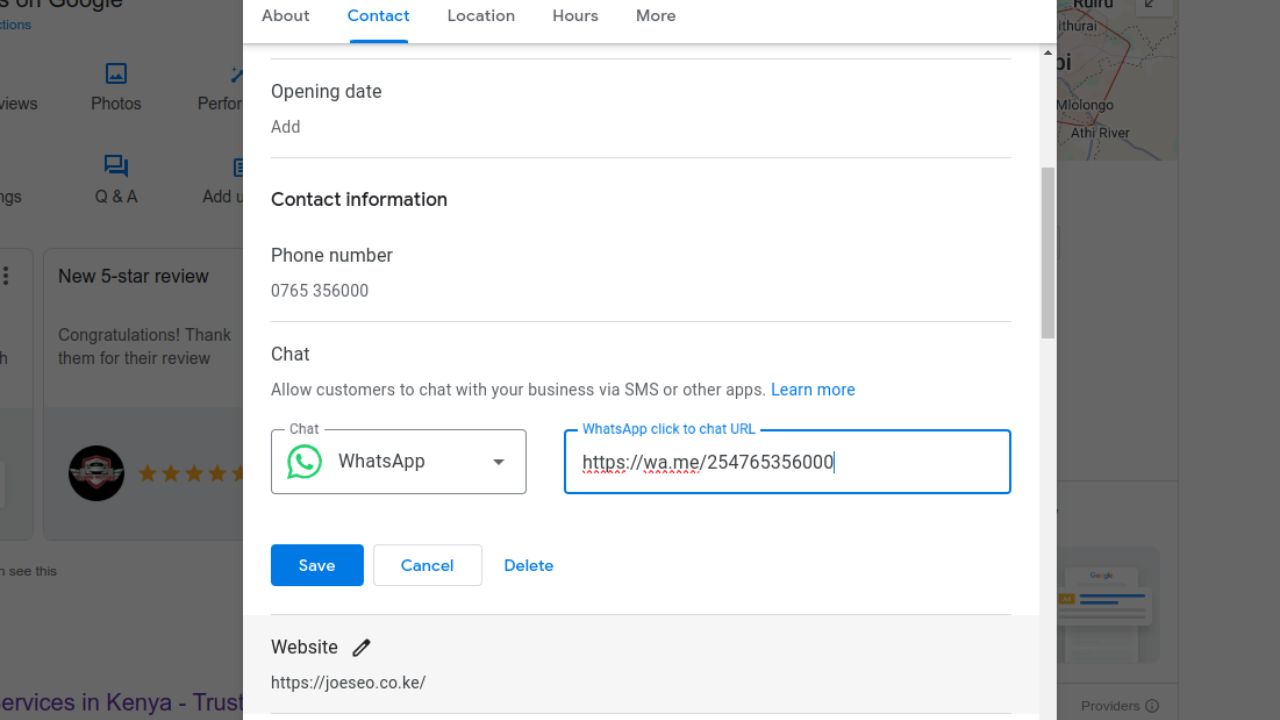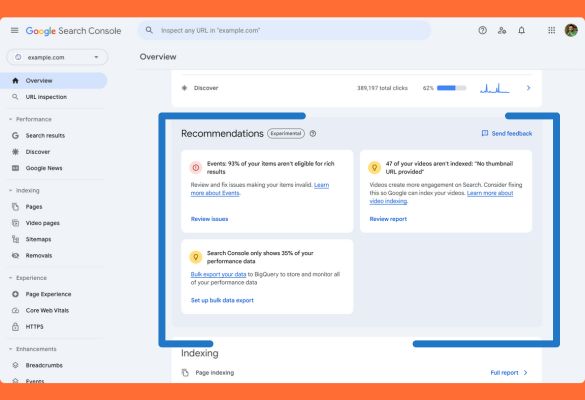Why You Need A Sitemap
Creating a sitemap is crucial in enhancing your website's SEO, as it helps search engines crawl and index your site more efficiently.
If you have tried using any online free sitemap generators to create a sitemap, you may have experienced some success if you have a small website, but they will mostly ask you to trade your email for the sitemap.
Our SEO Expert, Joe, has created an excellent sitemap maker for you using Python. If you don't know how to run Python code, don't worry. I will make it very easy for you.
You will not need to install anything on your computer to use this free XML sitemap generator
You will also not need to visit any sitemap generator website.
We'll show you how to use a simple Python script (that we will give you for free) on Google Colab (a free Google tool for running Python code) to generate a sitemap for your website.
That gives you a powerful sitemap builder in your hands for free.
You can then create an XML sitemap online for free and download it to your computer.
What Does the Python Code Do?
The Free sitemap tool we’ll use performs the following actions to generate a sitemap for any website:
It will create a sitemap from the URL you will provide when prompted.
Fetches All Links: It starts by fetching all internal links from the provided website URL
Crawls the Website:
The script then crawls the entire website, collecting links and storing information about each link's source and surrounding HTML snippet.
Generates XML Sitemap:
As it crawls, the script generates an XML sitemap with URLs, their last modification date, and priority.
Saves and Cleans Up:
After completing the crawl, the script saves the sitemap and cleans up any temporary files.
Sorts Alphabetically:
After cleaning up, the script will rearrange your sitemap entries alphabetically, making it easy to find links in the sitemap.
Provides Snippets:
After crawling, the script will give you snippets of code around where each URL was found to ensure you can quickly troubleshoot broken links.
Here is the code: Copy the free sitemap builder code, and I'll show you where to paste it.
Free Online Sitemap Generator Code
import requests
from bs4 import BeautifulSoup
from urllib.parse import urljoin, urlparse
import xml.etree.ElementTree as ET
import xml.dom.minidom as minidom
import os
from datetime import datetime
def get_all_links(url, domain):
try:
response = requests.get(url)
if response.status_code != 200:
print(f"Failed to retrieve {url} (status code: {response.status_code})")
return [], {}, {} # Return three empty values
soup = BeautifulSoup(response.text, 'html.parser')
links = set()
link_sources = {}
link_html_snippets = {}
for link in soup.find_all('a', href=True):
href = link.get('href')
full_url = urljoin(url, href)
parsed_full_url = urlparse(full_url)
if parsed_full_url.netloc == domain:
clean_url = parsed_full_url._replace(fragment='').geturl()
links.add(clean_url)
link_sources[clean_url] = url # Store the source URL
# Store the HTML snippet around the link
link_html_snippets[clean_url] = link.parent.prettify()
return list(links), link_sources, link_html_snippets
except Exception as e:
print(f"Failed to get links from {url}: {e}")
return [], {}, {} # Return three empty values in case of an exception
def append_to_sitemap(page_url, urlset):
url_element = ET.SubElement(urlset, 'url')
loc = ET.SubElement(url_element, 'loc')
loc.text = page_url
lastmod = ET.SubElement(url_element, 'lastmod')
lastmod.text = datetime.now().strftime('%Y-%m-%dT%H:%M:%S+00:00')
priority = ET.SubElement(url_element, 'priority')
priority.text = '1.00'
def save_state(to_crawl, crawled, to_crawl_file, crawled_file):
with open(to_crawl_file, 'w') as f:
for url in to_crawl:
f.write(url + '\n')
with open(crawled_file, 'w') as f:
for url in crawled:
f.write(url + '\n')
def load_state(to_crawl_file, crawled_file):
to_crawl = set()
crawled = set()
if os.path.exists(to_crawl_file):
with open(to_crawl_file, 'r') as f:
to_crawl = set(f.read().splitlines())
if os.path.exists(crawled_file):
with open(crawled_file, 'r') as f:
crawled = set(f.read().splitlines())
return to_crawl, crawled
def crawl(url, domain, urlset, to_crawl_file, crawled_file):
to_crawl, crawled = load_state(to_crawl_file, crawled_file)
if not to_crawl:
to_crawl = set([url])
link_sources = {} # Dictionary to store where each link was found
link_html_snippets = {} # Dictionary to store HTML snippets around each link
while to_crawl:
current_url = to_crawl.pop()
if current_url not in crawled:
print(f"Crawling: {current_url}")
crawled.add(current_url)
append_to_sitemap(current_url, urlset)
new_links, sources, snippets = get_all_links(current_url, domain)
new_links_set = set(new_links)
to_crawl.update(new_links_set - crawled)
link_sources.update(sources) # Update the source dictionary with new links
link_html_snippets.update(snippets) # Update the HTML snippets dictionary
save_state(to_crawl, crawled, to_crawl_file, crawled_file)
print(f"Discovered {len(new_links)} new links, {len(crawled)} total crawled.")
print(f"To crawl: {len(to_crawl)} URLs remaining.")
# Print the source and HTML snippet of each link
for link, source in link_sources.items():
print(f"Link: {link} was found on: {source}")
print(f"HTML snippet:\n{link_html_snippets[link]}\n")
return crawled
def remove_duplicates(urlset):
unique_locs = {}
urls_to_remove = []
for url in urlset.findall('url'):
loc = url.find('loc').text
if loc in unique_locs:
urls_to_remove.append(url)
else:
unique_locs[loc] = url
for url in urls_to_remove:
urlset.remove(url)
def strip_namespace(tag):
return tag.split('}', 1)[-1]
def clean_namespace(urlset):
for url in urlset.findall('.//'):
for elem in url:
elem.tag = strip_namespace(elem.tag)
def ensure_scheme(url):
if not urlparse(url).scheme:
return 'https://' + url
return url
def sort_urls(urlset):
url_elements = urlset.findall('url')
url_locs = [(url.find('loc').text, url) for url in url_elements]
sorted_url_locs = sorted(url_locs, key=lambda x: x[0])
sorted_root = ET.Element('urlset', xmlns="http://www.sitemaps.org/schemas/sitemap/0.9")
for loc, url in sorted_url_locs:
sorted_root.append(url)
return sorted_root
def pretty_print_xml(elem):
rough_string = ET.tostring(elem, 'utf-8')
reparsed = minidom.parseString(rough_string)
return reparsed.toprettyxml(indent=" ")
def create_sitemap(url):
url = ensure_scheme(url)
parsed_url = urlparse(url)
domain = parsed_url.netloc
print(f"Starting crawl of: {url} with domain: {domain}")
to_crawl_file = "to_crawl.txt"
crawled_file = "crawled.txt"
urlset = ET.Element('urlset', xmlns="http://www.sitemaps.org/schemas/sitemap/0.9")
urls = crawl(url, domain, urlset, to_crawl_file, crawled_file)
print(f"Total URLs crawled: {len(urls)}")
remove_duplicates(urlset)
clean_namespace(urlset)
sorted_urlset = sort_urls(urlset)
sitemap_file = f"{domain.replace('.', '-')}-sitemap.xml"
with open(sitemap_file, 'w', encoding='utf-8') as f:
f.write(pretty_print_xml(sorted_urlset))
# Clean up state files after crawling
if os.path.exists(to_crawl_file):
os.remove(to_crawl_file)
if os.path.exists(crawled_file):
os.remove(crawled_file)
print(f"Sitemap has been created and saved as {sitemap_file}")
if __name__ == "__main__":
website_url = input("Enter the website URL to crawl: ")
create_sitemap(ensure_scheme(website_url))
Running the Python Code on Google Colab
Google Colab is a free cloud-based service that allows you to run Python code without any setup.
Follow these steps to create your sitemap using Google Colab:
- Access Google Colab: Go to Google Colab and sign in with your Google account.
- Create a New Notebook: Click on "New Notebook" to create a new Python notebook.
- Copy and Paste the Script: Copy the provided Python code and paste it into a new cell in your notebook.
- Install Dependencies: All dependencies will most probably be installed. But to be careful, before running the code, ensure all required libraries (requests, BeautifulSoup, etc.) are installed by adding the following lines at the top of the notebook:
!pip install requests beautifulsoup4
- Run the Code: Press the "Run" button (the play button at the top left of your pasted code) or use Shift + Enter to execute the script. Scroll down to the end of the code.
- Input Your Website URL: Enter the URL you wish to crawl when prompted. Like 'joeseo.co.ke'
- Download the Sitemap: After the script finishes, the sitemap will be saved as [your-domain]—sitemap. XML. You can download it directly from the notebook by clicking on the file in the sidebar.
Before ending its work, the script will tell you where each link was found by providing the code surrounding each discovered link.
This makes it easy for you to troubleshoot broken links and remove/correct them on your website.
Detailed Explanation of the Python sitemap generator Code
get_all_links(): This website sitemap generator fetches all hyperlinks from a given URL, filtering them to include only those within the same domain.
append_to_sitemap(): Adds each crawled URL to the XML sitemap with a timestamp and priority.
crawl(): Recursively visits each link, building the sitemap and saving the crawl state.
remove_duplicates(): Ensures no URL is listed more than once in the sitemap.
create_sitemap(): Orchestrates the whole process, from starting the crawl to saving the final sitemap file.
Conclusion
Following these steps, you can easily create a sitemap generator for your website using Python on Google Colab.
This approach requires no local setup and is completely free, enabling anyone with an internet connection to create a sitemap online.
Ensure to check your sitemap for accuracy and submit it to search engines to boost your SEO efforts.












